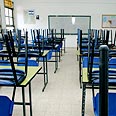
Anyone who fails to toe the line with what they define as the "Zionist consensus" is labeled as "illegitimate" and hence has no place in academia, in their view.
However, this argument embodies an absolute failure to understand the essence of academia and of academic freedom – the freedom of lecturers to research, express, ask questions, teach, and discuss topics and views that may prompt unease within certain political groups, including among government authorities. Professors should be able to do without being subjected to intimidation, repression, and threats of losing one's job or ending up in jail.
Without challenging consensual thinking we shall never see any new ideas. This is academic freedom, and without it we shall be left with something else, but it won't be academia.
In midst of dark period
This basic notion is currently facing a growing threat. On Monday, a draft report made its way to the Tel Aviv University president, who asked to review the curriculum of sociology courses mentioned in the document. The explanation provided was that "the president's office recently received a document on behalf of the Institute for Zionist Strategies. In a routine step, as is customary with these types of inquiries, the president's office turned to the relevant parties in order to look into the matter."
A few things here warrant our attention. First, what do they mean by "these types of inquiries?" What "type" are we talking about here? Were such inquiries made in the past and prompted similar moves? Secondly, what does "routine step" mean? Why does the state of affairs in the sociology department warrant the adoption of what is referred to as "routine steps" – that is, an automatic move undertaken without any thought? After all, it's clear that such inquiry is not a routine matter and calls for wholly different thinking and preparation.
Finally, the most fundamental question: If the university saw fit to adopt this kind of automatic step, why did it choose this response – reviewing course curricula – rather than another approach? After all, we are dealing with an inquiry by an organization that believes academic research and teaching should be undertaken in a manner that undermines freedom of thought, criticism, and academic freedom.
Academia is not supposed to be part of the government apparatus. As Senator Fulbright said, a university that serves the government betrays its mission and supreme purpose, and therefore does not deserve to be called academia. Hence, in this kind of inquiry, officials would do well to come up with a different response. For example: Show courageous leadership, while joining forces with the directors of other higher education institutions and the Council for Higher Education and publically rejecting the report and everything it represents.
And an optimistic thought to conclude: As this was merely a draft report, we can still hope that once the final version is published (likely ahead of the holiday season, for the benefit of the holiday editions of newspapers,) we shall see the proper, fitting response by Israel's higher education leadership; a response that may mark a turning point in the dark history we're currently witnessing.
Dr. Nitza Berkovitch teaches sociology at Ben-Gurion University and specialists in organizations, globalization, human rights and gender rights















